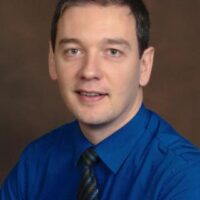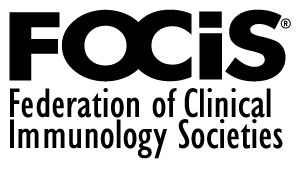Principal Investigator at the Columbia Center for Translational Immunology
New York, United States
About Remi Creusot, PhD

Career path
1. How did you first get involved in immunology?
I was exposed to immunological research doing a six-month internship for my Master’s, which I did in the Immunology Unit at GSK, which was GlaxoWellcome, at the time. That was in England. And it was my first experience abroad since I had only studied in France, and I got to work on DNA vaccines at a time it was a new and promising alternative approach to vaccination. I studied CD4 T-cell responses and how they cross regulate each other. Back then I learned Flow Cytometry, which is a technique I have been using extensively throughout my career. I loved it. Once I graduated with my Master’s, I knew I had to do a PhD in immunology. I was fortunate enough to apply for a PhD position in a university in London, in a lab whose Principal Investigator just started sabbatical leave in the same unit I was previously in at Glaxo. And so things fell into place really well. I went back to the same company to do one more year as part of my PhD project and I transferred my studies to University College London. That’s where I graduated after a couple of years and I was then proud to call myself an immunologist.
2. Tell us about the research you’re most proud of.
Honestly, I’m proud of all my research projects even if some projects are harder to get funding for than others. I am particularly proud of the project that I have been able to integrate or link together, which helps me leverage advances in some projects to support the others. I tend to be also prouder of technological advances than advances in fundamental knowledge, simply because I feel that these take me a step closer to a potential treatment for patients.
3. What is the most important trait a researcher should possess and why?
Well, there’s a lot of them, but without tenacity and patience, I don’t think I’d be in my position. I had to remain determined in the face of experiments that failed and grant applications that got turned down and also the field is more and more competitive. Creativity and adaptability are important traits, I think. Adaptability can apply at different levels. First, when we start as a new investigator who’s independent, we must acquire all sorts of new skills, such as basically managing a business, managing people, budgeting, even marketing, once we start to come up with inventions, something that we are poorly prepared for as scientists. We also need to be able to adapt to where the data lead us, which can be in unexpected directions. And we need to adapt our strategies based on what others are doing in the field. One publication by another group can take away some of the novelty of something you’re working on. So maybe adaptability is also an important trait.
4. What is the biggest lesson you’ve learned?
I learned that it’s almost impossible to make big strides on your own while remaining exclusively within your field. I had not anticipated that, but for example, I have been working increasingly with bioengineers within and outside Columbia and without those interdisciplinary interactions, I don’t think I would have made as much progress or followed the same directions. In fact, scientists outside our field often have solutions to many of our challenges. So creating those interactions is not easy. Now academic researchers, especially the most established ones, are very busy and solicited. And at the same time, they’re also curious and excited about new opportunities. So it’s always worth trying, but you have to be patient and persistent.
5. What advice would you give to young researchers just starting out in the field?
I would tell them not to be discouraged hearing about the struggle and potentially stressful life of academic PIs. We always say success will follow the passion and you can’t give up on something without taking some risks and trying it out. So just don’t be discouraged and try it out.
6. Describe your average workday.
On an average day, I would probably have maybe three meetings or maybe one meeting with a lab member, one to one, and meeting with a colleague or a collaborator, like a team meeting and maybe a seminar. And also possibly do some work related to an academic service, preparing a lecture or work related to the Flow Cytometry Core that I direct and the rest of the time would be on grant or paper writing, and that’s if I don’t have grants or papers to review. Then there’s a lot of emails that take quite a bit of time to answer. I never have had the same day again. Each day is different.
Work with FOCIS and FCE's
8. Switching gears, how did you first get involved with FOCIS?
I was immediately exposed to FOCIS when I came to the US as my post-doc mentor was Dr. Gary Fathman, the founder of FOCIS. I attended many FOCIS meetings, including once as an FCE trainee. It has always been one of my favorite meetings where I got to catch up with friends and make new acquaintances. The science and presenters are always excellent with the world’s greatest leaders at the helm of the organization.
9. How do you think FOCIS has changed your world?
I’d say first that FOCIS has been one of the major conduits for exposing my research to the people in my field. I presented a lot of posters at FOCIS meetings. Second, FOCIS has progressively been recognized as the leading organization and meeting in translational immunology at the same time as my work has become more and more translational over the years. I would not say FOCIS changed my work per se, but FOCIS and my world are in a happy relationship. You know, hands to hands.
10. If your colleague asked you why they should join FOCIS, what would you tell them?
Well, if it’s a colleague and if I did my job properly as an FCE Director, I hope my colleagues will know enough about FOCIS and what it has to offer. After that, if they still ask me why they should join, I would tell them that the membership fees are quite reasonable for the benefits afforded and I would encourage them to attend the annual meeting once and see for themselves. And with all these member organizations, there’s always one that is a good fit for you. When you are a member of one organization, you pay less fees, so the membership is cheaper for FOCIS.
11. We’re going to talk a little bit now about your FCE. Can you tell us about the research that you’re doing?
If you ask about my own research, it’s understanding how immune tolerance is failing in individuals with Type 1 diabetes and how we can rectify this and allow the person’s immune system to retake control of these rogue immune cells and block the autoimmune response. One aspect of my research is more basic, with modified animal models to investigate a role of certain genes or cell types. Another aspect would be on modeling the human immune system in vivo to study immune interactions and evaluate therapeutic approaches on human immune cells. Another aspect is more preclinical with the development and evaluation of therapies, where we try to tackle barriers to translation to human application, one by one, as they come up. But within the Colombia FCE as a whole, we have a wide variety of research in basic, translational and clinical immunology.
Some of the strong areas are transplantation (and xenotransplantation), cancer immunotherapy, infectious diseases, including COVID-19, and also neuroimmunology. We have a very large and diverse patient population here in New York City for clinical research. Some studies are powered by local organ donor networks, others study human immune cells with organs that are grown from stem cells, often with sophisticated chips and then others leverage the latest tools in humanized mice to investigate function of human immune cells in vivo. There’s a lot of facets to translational immunology here at Columbia.
12. What is the vision/your dream goal of your FCE?
My goal is to first establish an institutional network of scientists that are aligned with the interests of FOCIS to help them and also their trainees via opportunities provided by FOCIS – the travel awards, networking opportunities – and also for me to get to know them and their research better through these interactions so as to foster more horizontal transfer of technologies and models and knowledge within Colombia. Another goal is for me to get to know other researchers from other FCEs and subsequently create a link between the different groups at Columbia and the other FCEs and possibly facilitate new collaborations and exchange of expertise, for example. I think this will take some time as the translational and clinical community here at Columbia has become quite big.
13. What are your biggest challenges?
The community of Colombia immunologists that is aligned with the mission of FOCIS is quite large. To form a cohesive internal network, given how busy people are, can be challenging, especially when you have an introvert like me to try to get people’s attention. I think that, with time, as people know you better, it gets easier to approach people and be more approachable. It’s a lot of people to contact and get things organized.
14. Why did you apply to be an FCE?
I didn’t apply. The Columbia FCE existed for several years. I’m not sure how many. I simply took over the reins from Dr. Donna Farber. When I was asked to represent Colombia as the new FCE director, I felt it was both an honor and an opportunity to give back and grow within an organization that I came to cherish over the years. In a way, I feel like taking the baton in a relay race, and now I try to do my best to carry it forward. It feels particularly special as I know that the vision I’m carrying forward is one of my former mentor, Dr. Fathman, and I am proud of being part of that vision and the future of the organization.
15. Anything else to add?
I could give thanks to some of the other people here involved with FOCIS: Dr. Wassim Elyaman is the associate director of the FCE, who kindly agreed to work with me on this; Donna Farber, who I mentioned was a former FCE director, and also currently Megan Sykes, the current president-elect of FOCIS. And they’re all great advocates for FOCIS and also outstanding contributors to the field of human translational immunology. I wanted to mention them.
Those are all the questions for today, thank you for your time.
